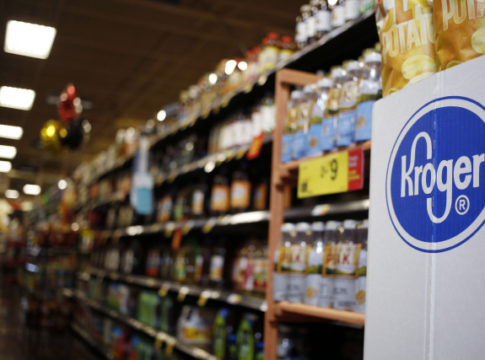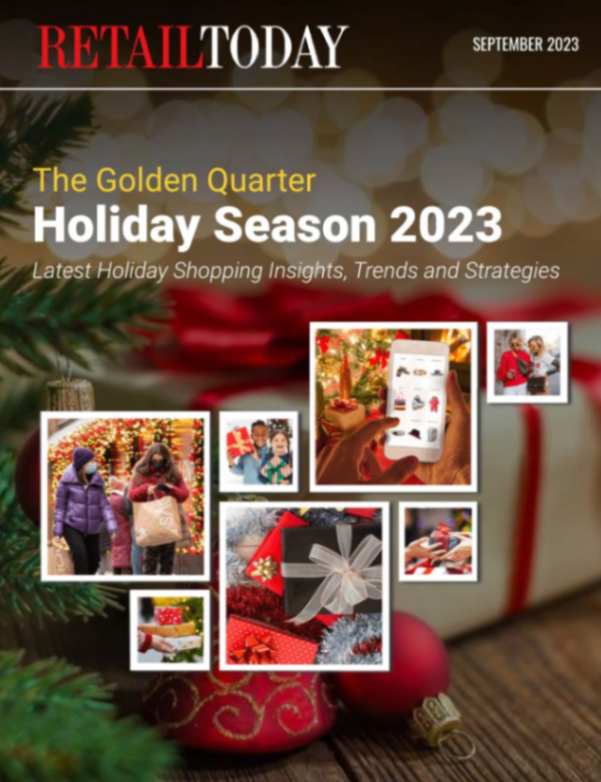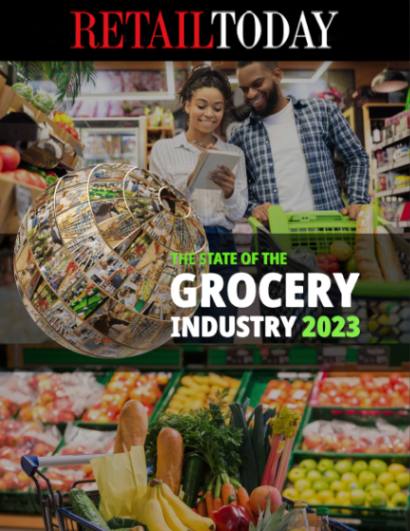The Kroger Co. (NYSE: KR) today reported its first quarter 2020 results, provided a Restock Kroger progress update on the three-year transformation plan and an update to the COVID-19 response.
Comments from Chairman and CEO Rodney McMullen
“The COVID-19 pandemic and the most recent instances of racial injustice have changed our country in unmistakable ways, not the least of which is the devastating loss of life and livelihood that has affected so many Americans. Kroger remains guided by our purpose and our values. I am proud of our associates who stepped up when we were called to be there for our customers, communities and each other. Our company is proud to stand with our Black associates, customers and communities against racism and for a more just and equitable society.
Under Restock Kroger, we have made significant investments over the last several years to establish a seamless digital ecosystem, strengthen Our Brands and our personalization capabilities, and to enhance product freshness and quality. These investments helped Kroger deliver improved results in 2019, a strong start to the quarter, and very much came to the forefront as we provided our customers with the fresh food and essentials they have needed during the pandemic.
We are proud of our heroic and dedicated associates who are serving our customers when they need us most. As America enters the next phase of the pandemic, we know that our associates will continue to rise to meet the challenge, delivering Fresh for Everyone and helping our customers, communities and America emerge even stronger.”
Financial Results
| 1Q20 ($ in millions; except EPS) | 1Q19 ($ in millions; except EPS) | |
| ID Sales | 19.0% | 1.5% |
| EPS | $1.52 | $0.95 |
| Adjusted EPS | $1.22 | $0.72 |
| Operating Profit | $1,326 | $901 |
| Adjusted FIFO Operating Profit | $1,453 | $957 |
| FIFO Gross Margin Rate* | Increased 44 basis points | |
| OG&A Rate* | Increased 51 basis points |
| *without fuel and adjustment items, if applicable |
Total company sales were $42 billion in the first quarter, compared to $37 billion for the same period last year. Excluding fuel and dispositions, sales grew 19.1%.
Gross margin was 24.3% of sales for the first quarter. The FIFO gross margin rate excluding fuel increased 44 basis points, due to sales leverage related to shrink, transportation, warehousing and advertising costs.
The LIFO charge for the quarter was $31 million, compared to $15 million for the same period last year, primarily driven by higher inflation in meat.
The Operating, General & Administrative rate increased 51 basis points, excluding fuel and adjustment items. No adjustment was made for COVID-19 related costs.
During the quarter, Kroger made the decision to contribute an additional $236 million to multi-employer pension plans, helping stabilize associates’ future benefits. Excluding this contribution, fuel and adjustment items, the OG&A rate improved 10 basis points.
Rent and depreciation excluding fuel decreased 37 basis points due to sales leverage.
Capital Allocation Strategy
Kroger’s capital allocation strategy is to use its adjusted free cash flow to invest in the business and drive profitable growth while also maintaining its current investment grade debt rating and returning capital to shareholders. The company actively balances the use of its adjusted free cash flow to achieve these goals.
Kroger’s net total debt to adjusted EBITDA ratio is 1.81, compared to 2.54 a year ago. The company’s net total debt to adjusted EBITDA ratio target range is 2.30 to 2.50. Kroger held temporary cash investments of approximately $2.3 billion as of the end of the quarter, reflecting improved operating performance and significant improvement in working capital.
2020 Guidance
Comments from CFO Gary Millerchip
“The COVID-19 pandemic has dramatically changed the outlook for food retail in 2020 and we continue to monitor, evaluate and adjust our plans to address the impact to our business. There are still many unknown factors related to the long-term impact of COVID-19 that could influence our financial results for the remainder of 2020, such as:
- continued investments to help our customers and associates,
- uncertainty surrounding consumer behavior, restrictions and what will be the new normal, and
- potential long-term shift in customers eating more food at home.
In recognition of these factors, it is difficult to predict specific outcomes and as such Kroger is not reaffirming or providing new 2020 guidance. While we expect to exceed the outlook shared in our April 1 business update for identical sales without fuel, adjusted FIFO operating profit, adjusted EPS and adjusted free cash flow, the Company is not able to forecast the extent of such upside for the reasons mentioned above.
Kroger’s financial model has proven to be resilient throughout the economic cycle. We remain confident in our business model as well as our ability to generate strong free cash flow and achieve sustainable and attractive total shareholder returns.”
Kroger’s COVID-19 Response
Kroger’s most urgent priority during the COVID-19 pandemic has been to provide a safe environment for associates and customers with open stores, ecommerce solutions and an efficiently operating supply chain so that its communities have access to fresh, affordable food and essentials. The Kroger Family of Companies announced investments of more than $830 million to reward associates and safeguard associates, customers and communities. The Company’s response to the COVID-19 pandemic demonstrates that when a company is clear on its purpose, values, and vision, we can navigate through any challenge together.
Key actions to support associates, customers and communities, include:
Safeguarding & Supporting Associates
- Offered free COVID-19 testing to associates based on symptoms and medical need
- Provided COVID-19 Emergency Leave to associates
- Recognized and rewarded associates with special premium pay and bonuses in March, April, May and June in addition to ongoing comprehensive benefits packages including healthcare coverage and retirement benefits that many competitors don’t offer
- Added ExpressPay – a new benefit that allows most hourly associates to access pay faster, putting money in their pockets sooner than usual
- Promoted access to mental health services and other benefits to support associates’ mental and physical well-being
- Contributed $15 million to the organization’s Helping Hands fund to provide financial support to certain associates experiencing hardships due to COVID-19, including childcare costs
- Adjusted store operating hours to allow more time for associates to rest, clean and replenish inventory
- Provided masks for all associates and encouraged them to stay home if they are sick
- Enforced customer capacity limits and encouraged customers to wear masks in stores or alternatively use ecommerce services
Safeguarding & Supporting Customers
- Installed partitions at check lanes, pharmacy and Starbucks registers across the enterprise
- Enhanced cleaning procedures and implemented deep disinfection process at all stores
- Added floor decals to promote physical distancing at check lanes and other counters
- Established special shopping hours for senior shoppers and higher-risk customers
- Offered a no-contact delivery option, low-contact pickup service and ship-to-home orders
- Waived Pickup fees with no minimum purchase requirements
- Began accepting SNAP/EBT benefits for Kroger’s low-contact Pickup service across the country
- Implemented a Pickup-only location in Cincinnati
- Continued to expand contactless payment solutions like Kroger Pay
- Introduced free telenutrition service to help customers shop for, prepare and enjoy healthy fresh and non-perishable foods during the pandemic
- Rolled out one-way aisles in select markets
- Waived fees for prescription delivery via mail or courier
- Supported the CARES Act by waiving the check-cashing fee for stimulus checks
Community
- Hired more than 100,000 new associates
- Established expedited hiring process and formed employment partnerships with businesses from the industries most affected by mandatory shutdowns
- Tested 82,199 patients in 15 states as one of only five U.S. retailers to develop, staff and expand a free COVID testing model in partnership with the federal and state governments
- Offered walk-up testing sites to support the most vulnerable in communities
- Offered customers new ways to meaningfully give back through charitable giving platforms online, via Kroger Pickup orders, and at check lanes across nearly 2,800 locations
- Activated The Kroger Co. Zero Hunger | Zero Waste Foundation’s Emergency COVID-19 Response Fund to help families disproportionately impacted by COVID-19. To-date, Kroger and the Foundation have committed more than $8 million to nonprofit organizations addressing urgent COVID-19 response efforts
- Expanded Dairy Rescue Program to support children and families during the COVID-19 pandemic through the summer months
- Published Sharing What We’ve Learned: A Blueprint for Businesses resource guide to provide actionable recommendations to help America’s businesses reopen safely
In response to the most recent instances of racial injustice, the company is taking steps to be a part of the solution toward a more just and equitable society, including:
- Hosting virtual listening sessions to hear directly from Black associates and how we can better support them
- Shared an Allyship Guide developed by its African American Associate Resource Group
- Establishing a $5 million fund via The Kroger Co. Foundation to support the advancement of diversity, equity and inclusion in communities





